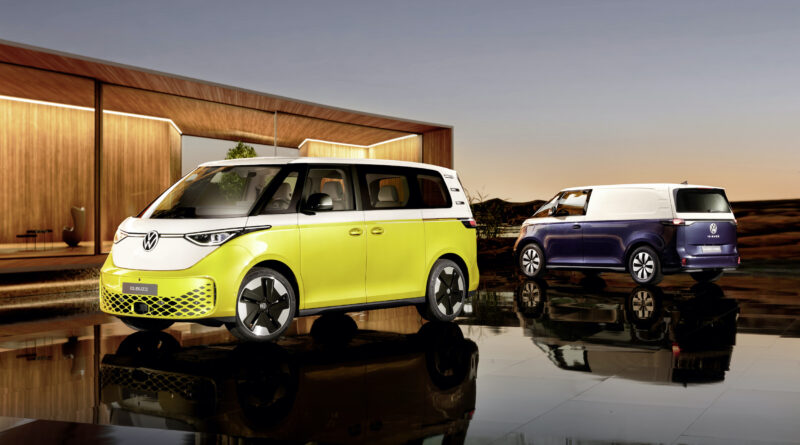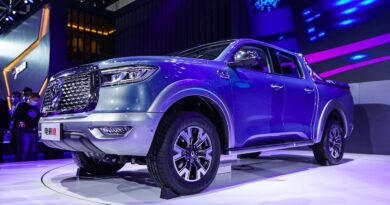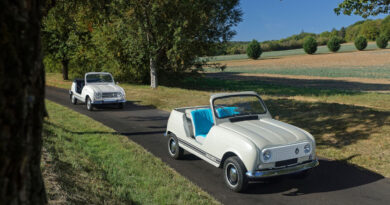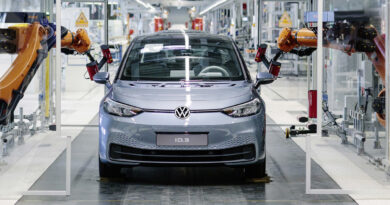Volkswagen ID.Buzz, ID.Cargo have ‘huge potential’ in Australia; arriving late 2024 at the earliest
Volkswagen Australia is thinking big with the ID.Buzz electric people mover and ID.Cargo EV van.
The company believes it is sitting on a ‘segment buster’ with the imminent arrival of the radical ID.Buzz and its load carrying sibling.
The modern EV interpretation of the legendary Kombi is all but a done deal for Australia, but it won’t be on sale until late 2024 or early 2025, according to Ryan Davies, brand director of Volkswagen Commercial Vehicles in Australia.
“I don’t think we realise what we’re sitting on,” says Davies.
READ MORE: OTA software updates bring faster charging, new tech to Volkswagen EVs
“We don’t even really know what the market potential of that car could be. You have such a cross-sectional opportunity. You could have people coming from hatchbacks to SUVs to vans, even utes. It’s got such broad appeal and it’s such an exciting product.”
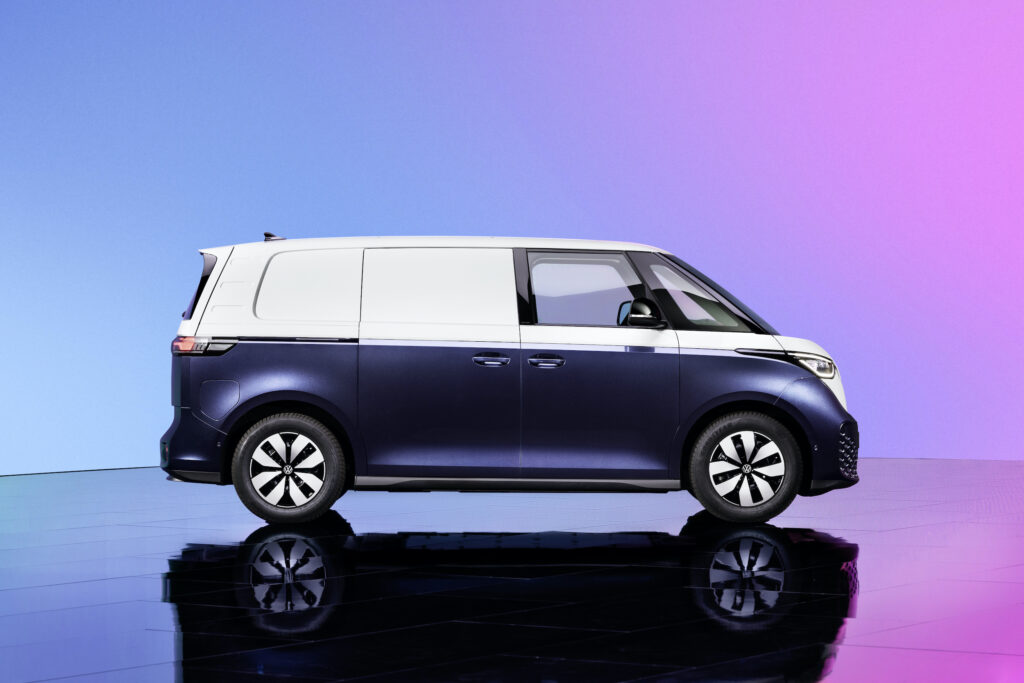
The segment busting nature of the newcomer – which has already surprised in the US with initial interest described as “through the roof” – has Davies forecasting big sales.
He says it is a “natural progression” to follow on from the ID.4 and ID.5 that have already been confirmed as the first Volkswagen EV in the country as early as 2023.
“We think we’ll get it [ID.Buzz and ID.Cargo], it’s just a matter of finalising the rollout.”
While Volkswagen Australia has struggled to convince its German head office to divert EVs to Australia – blaming the lack of emissions regulations as a roadblock that leaves little incentive to sell zero emissions cars here – Davies says the sheer numbers should tell a powerful story.
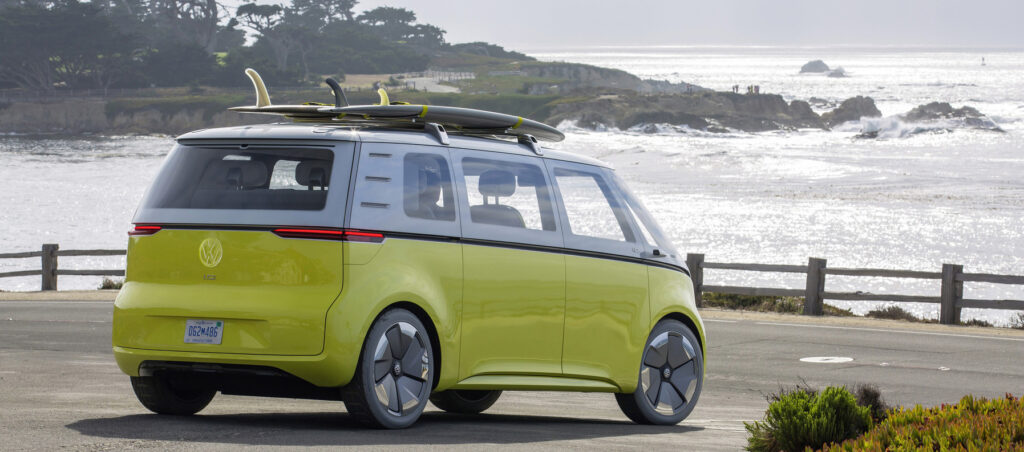
“I know what we’re planning to sell [volume of ID.Buzz and ID.Cargo] so if that doesn’t get the attention of our colleagues in Germany I’d be surprised,” he says.
With futuristic retro-infused styling and a bespoke EV architecture that liberates more interior space, Davies believes the ID.Buzz will be a people mover that is aspirational, something of a rarity in a market segment that’s usually been about functionality and necessity over desire to slide behind the wheel.
“Typically vans haven’t been the sort of car that’s appealed to the masses, but this is not a van – it’s ID.Buzz … it’s exciting.”
He admits the ID.Buzz will cost more than the equivalent Volkswagen van today, the closest of which is the Multivan, priced from $63,090 before on-road costs.
He says that will be offset with higher levels of equipment.
Of course, the ID.Cargo van version – used for carrying more luggage than people – also has big potential, in part because of the desire by corporations and governments to drive more environmentally friendly vehicles. It will go up against the Ford E-Transit Custom that is due in Australia in 2023.
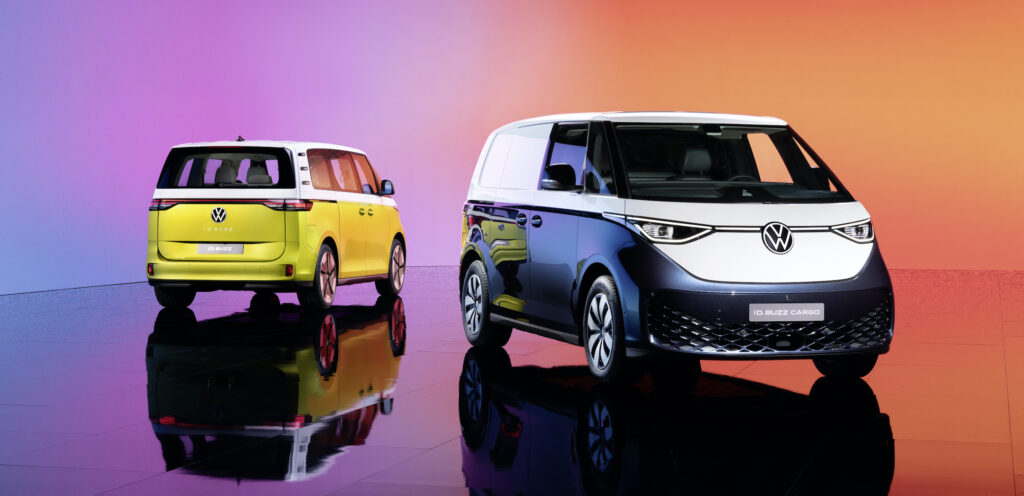
“There’s huge appetite for electric vans because a lot of organisations are looking to move to CO2 neutral,” says Davies.
But he says the bigger demand “is probably more being driven by local government and large fleets”, especially those with CO2 mandates.
Either way, expect Volkswagen to ramp up its EV offerings once the electric ID.Buzz and ID.Cargo make it Down Under.
“We think Buzz will be the higher volume certainly to start with but as time goes on, Cargo in that commercial vehicles segment will continue to grow because it’s going to be more in demand.”

